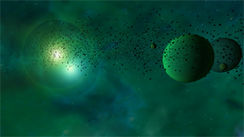
|
This wiki is closed in favour of the new wiki. Information shown is likely to be very out of date. |
Difference between revisions of "Omicron-94"
m (pic file fixed) |
|||
| Line 15: | Line 15: | ||
|planets = | |planets = | ||
{{Planet|Planet Mykonos|uninhabited|Mykonos.jpg}} | {{Planet|Planet Mykonos|uninhabited|Mykonos.jpg}} | ||
| − | {{Planet|Santorini|uninhabited|Santorini.jpg}} | + | {{Planet|Planet Santorini|uninhabited|Santorini.jpg}} |
{{Planet|Amorgos|uninhabited|Amorgos.jpg}} | {{Planet|Amorgos|uninhabited|Amorgos.jpg}} | ||
{{Planet|Naxos|uninhabited|Naxos.jpg}} | {{Planet|Naxos|uninhabited|Naxos.jpg}} | ||
Revision as of 10:41, 1 December 2019
Error creating thumbnail: Unable to save thumbnail to destination
|
This page has been retired but kept for historical or other reasons, The information on this page may be incorrect, out of date or just not relevant to this version of Discovery. It should not be taken as canon nor any authority on the current version of Discovery. It is kept simply to show some history of the Discovery Mod:
See also:
|

|
A lot of these system pages are outdated, Space's nav map may be better. |
The Omicron-94 system, located beyond the Edge Nebula, is a tertiary star system at the very edge of the Sirius sector. A quiet and relatively safe region of the Corsair Empire, the system was discovered in 756 A.S. by explorers dispatched by Don Quixote of the Benitez Family.
Containing a number of planets and a number of unique stellar formations, the system was extensively explored during the tenure of Don Quixote, with the exception of the Aegian Nebulae, during the exploration of which, the famous explorer disappeared.
Since 786 A.S. the system has been gradually developed, with bases positioned in the system to benefit from it's relative security. Omicron 94 is part of a loop of systems only accessible from hidden jump holes in the Omicron Gamma system. Over recent years, security measures have been increased in response to reports of potential threats beyond the frontier of Corsair space.
Aside from the Corsairs and their current and former allies and business associates, the only organisation with any detailed knowledge of Omicron 94 are the Bounty Hunters Guild who discovered the system at some point in the late 8th century A.S. but before the Corsairs had begun developing the system. As a result, they have a rough understanding of the natural layout of the system and it's neighbours, not taking into account stellar drift, but no intel on the Corsair installations now established in the system, as further infiltration has been prevented by the potent defence forces posted at system's entrance.
| System navmap (FL, v4.88.1) (link) |
|---|
| System navmap (FLC, v4.88.1) (link) |
|---|
System Overview
|
Local factions
Lawful
None known Semi-Lawful
None known Unlawful
Stations
|
Planets
|
Commodities
Produced
Mineable
None known
|
Areas of Interest
Andros Field
The Andros Field was the first area of Omicron-94 to be discovered by the Corsairs.
Extensive surveys confirmed presence of trace iron oxide and aluminium oxide deposits, but not in concentration high enough for extraction to be viable.
Currently, Corsair pilots use the Andros Field predominantly for inner-field combat training exercises.
Recently, the Andros Field has become particularly important in deterring infiltration of the system by heavy enemy craft.
The Andros field is heavily patrolled by the Corsair contingent in the system, and is home to Tinos Outpost, an important base at the edge of the system, and the jumphole to Omicron Gamma.
North Aegian Nebula
An outcropping of the Edge Nebula, the North Aegean Nebula is largely uncharted. Recon missions by the Corsairs have been largely unsuccessful due to radiation emanating from within the nebula, and navigational hazards caused by the electromagnetic interference within the cloud.
Many survey ships dispatched into the nebula have not returned, and out of those that have, at least two have reported encountering hostile entities. Since this report, the Battleship Delos was dispatched to patrol the edge of the nebula, and continued reconnaissance into the nebula was suspended.
This region is considered extremely dangerous and should be avoided. Exploration of this area is prohibited by local laws.
South Aegian Nebula
An outcropping of the Edge Nebula, the South Aegean Nebula is smaller than it’s cousin in the north, and has less electromagnetic interference within.
With little economic or strategic value, the South Aegean Nebula is rarely utilised by the Corsairs, and parts are still unexplored.
Despite containing less electromagnetic interference and navigational hazards, the South Aegean Nebula is nevertheless an extremely dangerous region and should be avoided. Exploration of this area is prohibited by local laws.
Laws of Omicron 94
In 757 A.S shortly after the system's discovery, the Corsair Council of Elders charged the Corsair Benitez Family with the administration of the territory of Omicron 94. In 817 A.S. this arrangement was renewed 94 Declaration of 817 A.S. , with laws created for the region stating that visitors to Omicron 94;
- Must not enter the Aegean Nebulae
- Must not desecrate the remains of fallen ships
- Must follow instructions from Benitez pilots
Jump Gates/Holes
| Spoiler: Jump Hole/Gate Locations | ||||||||||||
|---|---|---|---|---|---|---|---|---|---|---|---|---|
|


